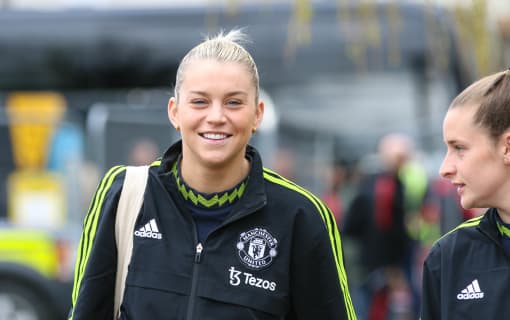Football is a simple game. Twenty-two men chase a ball for 90 minutes and at the end, the Germans always win - Gary Lineker
Sporting rivalries are natural, intense, and frequently fractious affairs, but often these rivalries matter more to fans, pundits and the media than they do to the players involved. Some of these rivalries are rooted in long-standing sporting grudges, some in historical sectarian or political divisions and some in local competition, but England v Germany’s football rivalry encompasses all of these elements.
Despite being more of an English phenomenon, with the Germans considering the Netherlands and Italy to be their traditional rivals, anytime England meet Germany on a football field, fans are guaranteed to enjoy a game full of passion, where pride in the badge is just as important as athletic prowess.
Having first played against Germany before the turn of the 20th century in 1899, England and Germany have a long football history, punctuated with some of the most memorable on field encounters.
Indeed, one of the most unforgettable meetings between English and German players came not in a football stadium, but on the no man’s land mud on the Western Front. During the Christmas period in 1914, a special Yuletide truce was negotiated between opposing soldiers and hostilities were halted. Soldiers sang carols, exchanged food and souvenirs, and played a celebratory game of football in the artillery ravaged wasteland that existed between the two armies. Although reports of the location and the score of any game remain unverified, football was always a united Anglo-German passion that continues to the current day.
Fully professional international meetings between England and Germany began in 1930, with England even playing Germany in Berlin’s Olympic Stadium in 1938 in what was one of British PM Neville Chamberlain’s final attempts to appease Hitler before the outbreak of WWII. With the post-war split between East and West Germany, this would be England’s last game against a unified Germany until the 1990’s.
Credit: British Movietone – https://www.youtube.com/watch?v=jlbLHviSTPc
After the Second World War, games between England and Germany were very rare but it would be the West-Germans that would enjoy more initial post-war success than their English counterparts. West Germany was a formidable footballing power and won the World Cup in 1954 but despite their status as a top team, England won friendly matches in 1956 and 1965 and would go on to beat them again in a World Cup warm-up match in 1966.
This would not be their last meeting in 1966. Both teams were at the peak of their powers, with many commentators believing either team had the potential to win the World Cup, which would be held in England that summer. England’s most celebrated football moment would follow – in a dramatic final at Wembley Stadium which included the infamous Geoff Hurst hattrick and a refereeing decision that would go down in history, England beat West Germany 4-3 to win their first and only World Cup. Sir Bobby Moore would collect the iconic Jules Rimet trophy from Her Majesty The Queen and England were on top of the footballing world.
Credit: England Football – https://www.youtube.com/watch?v=VPQvekloS8U
The next meeting between England and Germany would be in the quarterfinals of the 1970 World Cup in Mexico. Holders England were once again up against ‘Die Mannschaft’ but despite being 2-0 up, England would go on to lose 3-2 in extra time. The game is perhaps best remembered for England superstar goalkeeper Gordon Banks having to be substituted with illness and England’s best player Bobby Charlton being inexplicably substituted when the German’s were in the midst of their comeback. This crushing defeat in 1970 would ultimately mark the start of two decades of footballing dominance by the West-Germans in which they would go on to win the World Cup in 1974 and 1990, the European Championships in 1972 and 1980 and would produce genuine footballing icons like ‘Der Kaiser’ Franz Beckenbauer, Karl-Heinz Rumenigge, Jürgen Klinsmann, Lothar Matthäus and Sepp Maier.
For much of the 1970’s and 1980’s whilst the West Germans were winning multiple international tournaments, English football was in the doldrums. Marred by hooliganism issues and a ban for English clubs from European competition, it would not be until the World Cup of 1990 that England fans could once again believe in their team.
Despite being highly unfancied for the World Cup in Italy, England managed to reach the semi-finals they would once again face their arch-rivals – the West Germans. Bolstered by the reunification of East and West Germany earlier that year and the reinstatement of the Deutschemark just three days before the semi-final, beating this West-German team would be no mean feat for Bobby Robson’s men.
England went behind to an Andreas Brehme free kick but when Gary Lineker equalised in the 80th minute, England were back in the game. Extra time was required but with no further score, it would be down to the agony of a penalty shootout to decide the winner of this match. In excruciating fashion, Stuart Pearce and Chris Waddle would miss penalties and England experienced one of their most painful ever defeats.
Credit: RptimaoTV2 – https://www.youtube.com/watch?v=MdpOxTEmRfQ
This game was perhaps best remembered for the tears of young England star Paul Gascoigne. Upon receiving a yellow card and realising he would be banned should England reach the final, Gascoigne would begin sobbing uncontrollably into his shirt. The pain etched on his face represented the anguish England fans had endured and sadly, they were out of another major tournament.
Credit: 50 Great World Cup Moments – https://www.youtube.com/watch?v=tt0xx3So6zw
It wouldn’t be until the home European Championships of 1996 that England would have another crack at Germany. In their first tournament meeting since Germany had been fully reunified, England would again face their nemesis in the semi-finals at Wembley. Not only were England at home but they boasted their best team in decades and had a genuine chance to win the tournament.
Alan Shearer got the ‘Three Lions’ off to a great start, scoring in just the third minute to take the lead. Stefan Kuntz equalised just 13 minutes later, and the game would remain in stalemate. Extra time followed and with no score, the game would be decided by penalties. Each of the first five penalty takers scored, including Stuart Pearce who gained redemption for his miss in 1990, but with sudden death starting, up stepped Gareth Southgate for England. The current England coach would see his weak penalty saved by Andreas Köpke and Andreas Möller would slot his spot kick, knocking England out of yet another tournament in the worst fashion imaginable.
Credit: ITV Sport – https://www.youtube.com/watch?v=mie0ZL1vsFk
England would have to wait another five years to get some element of revenge over the Germans. After being defeated 1-0 by Germany in the last ever game to be held at the old Wembley Stadium in 2000, England were smarting after years of defeat at the hands of the Germans. On a wonderful night in Munich, England fans would finally have a victory to cheer. Nobody gave England a chance, but they left the Olympic Stadium as 5-1 winners, having absolutely destroyed their German counterparts. Michael Owen scored a hattrick and fans went wild after such a comprehensive victory.
Credit: England Football – https://www.youtube.com/watch?v=dUHTT2VnKao
In 2007, Germany would again defeat England in their first game at the new Wembley Stadium and England would again have to wait for their next opportunity to better the Germans. In the World Cup of 2010, England would meet Germany in the round of 16 knockout and would receive their heaviest ever World Cup defeat. The Germans hammered England 4-1 and knocked the ‘Three Lions’ out of yet another international tournament.
Credit: RptimaoTV2 – https://www.youtube.com/watch?v=3fM1uGQDG3w
England were again defeated by Germany in friendly in 2013 which prompted German tabloid newspaper Bild to declare proudly on their front cover that ‘Wembley is now German’ and there would be an eight year wait for their next meeting. In the rearranged Euro 2020 round of 16 knockout, England played Germany at Wembley and in heroic circumstances, won the game 2-0 and in doing so achieved their first win against the Germans on home soil, since the World Cup win in 1966.
Credit: ITV Sport – https://www.youtube.com/watch?v=uio-GveMuQA
Whilst England may not have always ended up on the winning side of this rivalry, it is nonetheless a truly compelling fixture that always creates debate amongst fans and evokes memories of the famous games of the past.
What you can be sure of though is that this rivalry that will stand the test of time and will always capture the imagination of both English and German fans alike.







